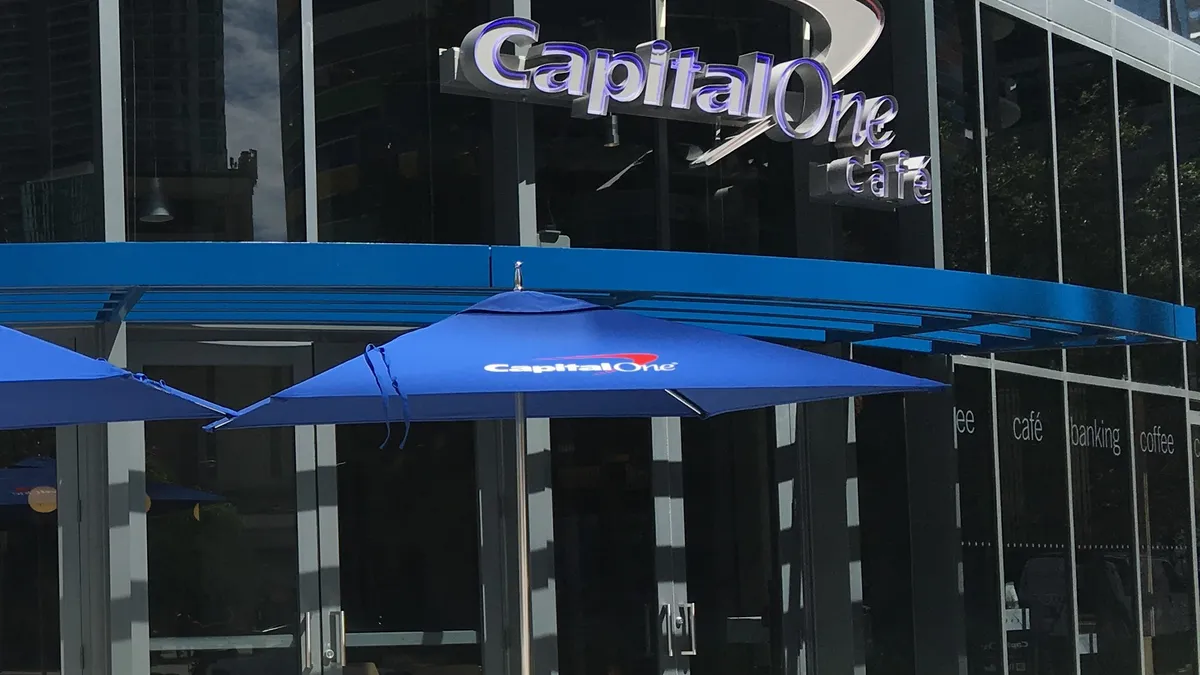Dive Brief:
- Capital One has barred customers from using its credit cards to clear buy-now-pay-later debt, Reuters reported.
- "These kinds of transactions can be risky for customers and the banks that serve them," a bank spokesperson said in an email.
- The move makes the third-largest U.S. card issuer the first to push back against the payment option, according to the wire service.
Dive Insight:
Buy-now-pay-later platforms have gained traction over the past decade, as startups such as Affirm, Afterpay and Klarna have appealed to millennial and Generation Z consumers with a model that allows them to pay for purchases in installments without the hefty interest that comes with credit cards.
Rather than passing the interest on to consumers, buy-now-pay-later companies charge merchants a commission for offering the option — luring them with the prospect that shoppers will make larger purchases (by up to 20%, according to data from PayPal and Afterpay) if an installment plan is available.
Additionally, 76% of consumers surveyed by Citizens Financial Group in 2018 said they were more likely to make a retail purchase if a merchant were to offer a payment plan backed by a "simple and seamless point-of-sale experience."
PayPal jumped into point-of-sale lending in August, announcing it would launch its "Pay in 4" platform this fall. The product would let consumers pay for a purchase of between $30 and $600 in four installments over a six-week period.
That same month, Ally Financial announced it would also offer point-of-sale lending — with an interest rate, albeit lower than that of most credit cards — through a partnership with Mastercard's Vyze. Ally's installment loans on retail purchases between $500 and $40,000 charge interest rates between 9.99% and 26.99% over a term of six to 60 months.
Outstanding balances on unsecured personal loans jumped nearly 60% from 2015 to 2019, credit reporting agency TransUnion reported. But 38% of that amount as of last year was held by fintechs — up from 5% in 2014, American Banker reported.
Some banks have moved to level the playing field by getting into the game. Citi, the nation's largest credit card issuer, last year launched Citi Flex Pay and Citi Flex Loan. The former lets users choose a purchase to pay off via fixed payments and a fixed annual percentage rate (APR). The latter lets cardholders borrow from their credit card limit and repay in installments at a fixed APR. JPMorgan Chase, likewise, launched My Chase Plan and My Chase Loan in June 2019.
Capital One, by contrast, said it would no longer allow "transactions identified as point of sale loans charged on its credit cards, regardless of the point of sale lender." Customers who paid for buy-now-pay-later purchases with debit cards or checking accounts were not affected by the move, the Capital One spokesperson said.
The bank's decision affected a "small percentage of Afterpay customers, and many of those have chosen to add a different card in their Afterpay wallet," the Australian fintech told Reuters.















